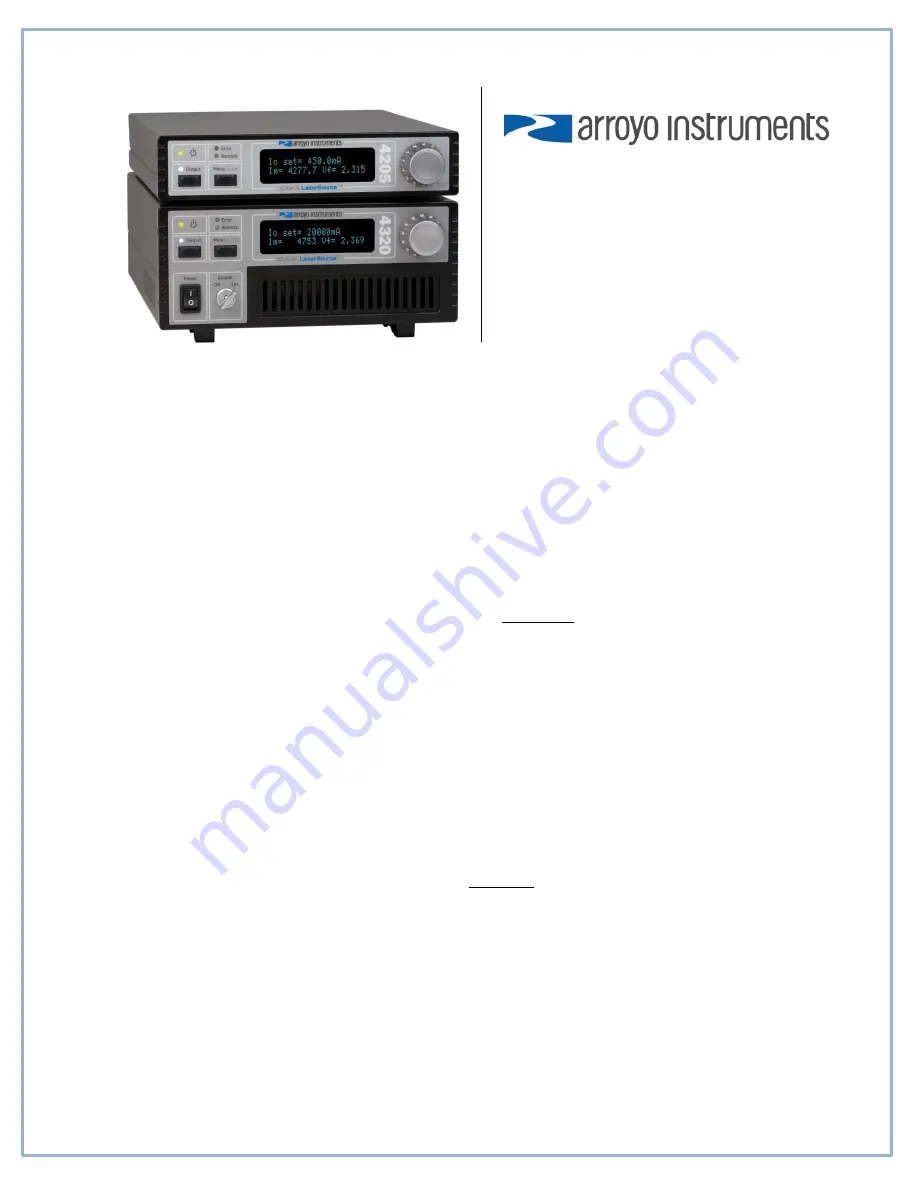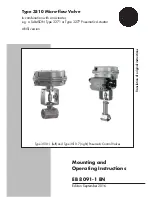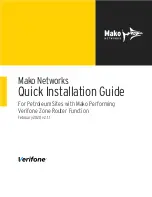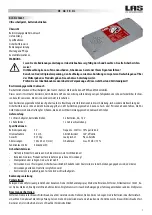
AN-019 - Modulating Output with a Fixed Voltage
Page 1
Many Arroyo Instruments laser drivers feature an analog modulation input (typically 0-10V, Paks use a
lower voltage). This input is typically driven using a function generator. All well and good if you have a
function generator available. However, in some systems, the only signal available is a fixed trigger signal,
often 5V. This document explores how to use that fixed voltage signal with the modulation input to
achieve set point control.
Modulating Range and Output Current Range Defined
Modulation range
refers to the difference between the maximum and minimum modulation current. For
example, if modulating between 2A and 6A, the
modulation range
would be 4A.
The
output current range
is the modulation range
plus
the
Io Setpoint
… the set point and the
modulation input sum together to form the output drive current. Note that when the source voltage is
off (0V), the diode will be driven by the amount of current as set with
Io Setpoint.
Defining the Output Current Range
The first step is to determine the modulation voltage required to achieve the target output current. For
the following examples, we’ll assume a +5V
trigger signal
is what’s available, and that we are working
with a 4308 LaserSource, which has an 8A output and a 0-10V modulation input.
Your modulation range will be limited by your trigger voltage divided by 10V and multiplied by the range
of the instrument:
𝑀𝑎𝑥𝑖𝑚𝑢𝑚 𝑀𝑜𝑑𝑢𝑙𝑎𝑡𝑖𝑜𝑛 𝑅𝑎𝑛𝑔𝑒 = (
𝑆𝑜𝑢𝑟𝑐𝑒 𝑉
10𝑉
) ∗ 𝐼𝑛𝑠𝑡𝑟𝑢𝑚𝑒𝑛𝑡 𝑅𝑎𝑛𝑔𝑒
For a 4308 with a 5V source, this equates into 4 Amps. If you need to achieve a higher maximum
current, adjust the
Io Setpoint
up as needed. If in the trigger off state operating the diode at a non-zero
current is not acceptable, you will need a higher trigger voltage which is outside the scope of this
document.
APPLICATION NOTE AN-019
Modulating Output with a Fixed
Voltage
February 19, 2020, Rev B





















